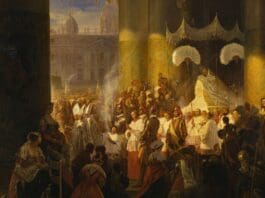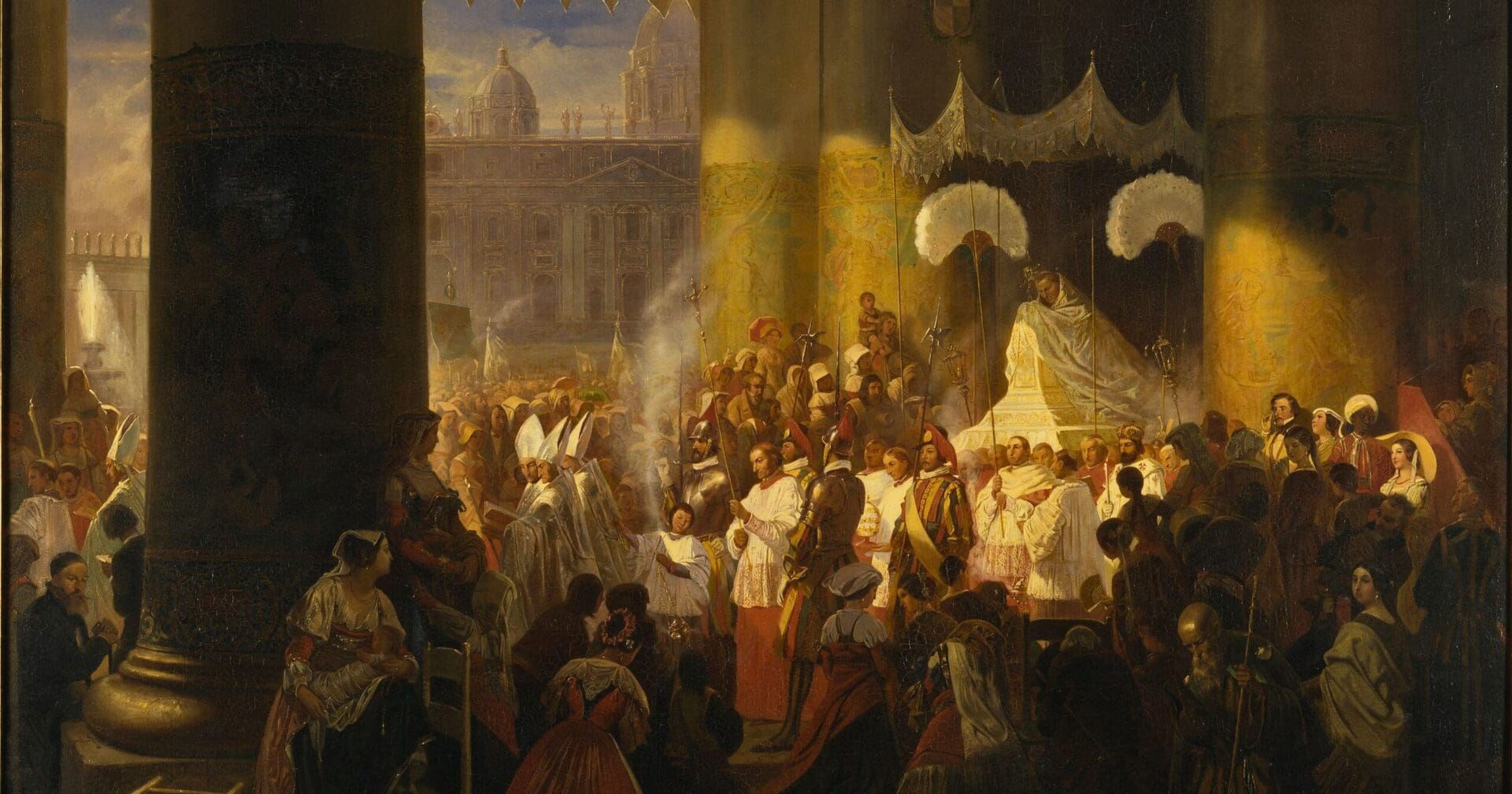
The Feast of Corpus Christi, or the Feast of the Body and Blood of Christ (as it is often called today), goes back to the 13th century, but it celebrates something far older: the institution of the Sacrament of Holy Communion at the Last Supper. While Holy Thursday is also a celebration of this mystery, the solemn nature of Holy Week, and the focus on Christ’s Passion on Good Friday, overshadows that aspect of Holy Thursday.
Thus, in 1246, Bishop Robert de Thorete of the Belgina diocese of Liège, at the suggestion of St. Juliana of Mont Cornillon (also in Belgium), convened a synod and instituted the celebration of the feast. From Liège, the celebration began to spread, and, on September 8, 1264, Pope Urban IV issued the papal bull “Transiturus,” which established the Feast of Corpus Christi as a universal feast of the Church, to be celebrated on the Thursday following Trinity Sunday.
At the request of Pope Urban IV, St. Thomas Aquinas composed the office (the official prayers of the Church) for the feast. This office is widely considered one of the most beautiful in the traditional Roman Breviary (the official prayer book of the Divine Office or Liturgy of the Hours), and it is the source of the famous Eucharistic hymns “Pange Lingua Gloriosi” and “Tantum Ergo Sacramentum.”
For centuries after the celebration was extended to the universal Church, the feast was also celebrated with a eucharistic procession, in which the Sacred Host was carried throughout the town, accompanied by hymns and litanies. The faithful would venerate the Body of Christ as the procession passed by. In recent years, this practice has almost disappeared, though some parishes still hold a brief procession around the outside of the parish church.
In countries where it is not a Holy Day of Obligation such as the United States, The Feast of Corpus Christi is celebrated on the Sunday after Holy Trinity.
Photo credit: Public Domain via Wikimedia Commons
The post The Solemnity of Corpus Christi appeared first on uCatholic.
Daily Reading
Wednesday of the Sixth Week in Ordinary Time
Reading 1 Genesis 8:6-13, 20-22 At the end of forty days Noah opened the hatch he had made in the ark, and he sent out a raven, to see if…
Daily Meditation
Living for Jesus
Click here for daily readings We live in a post-Christian world. We live in a world that is turning its back on Jesus Christ and his message of love and…




